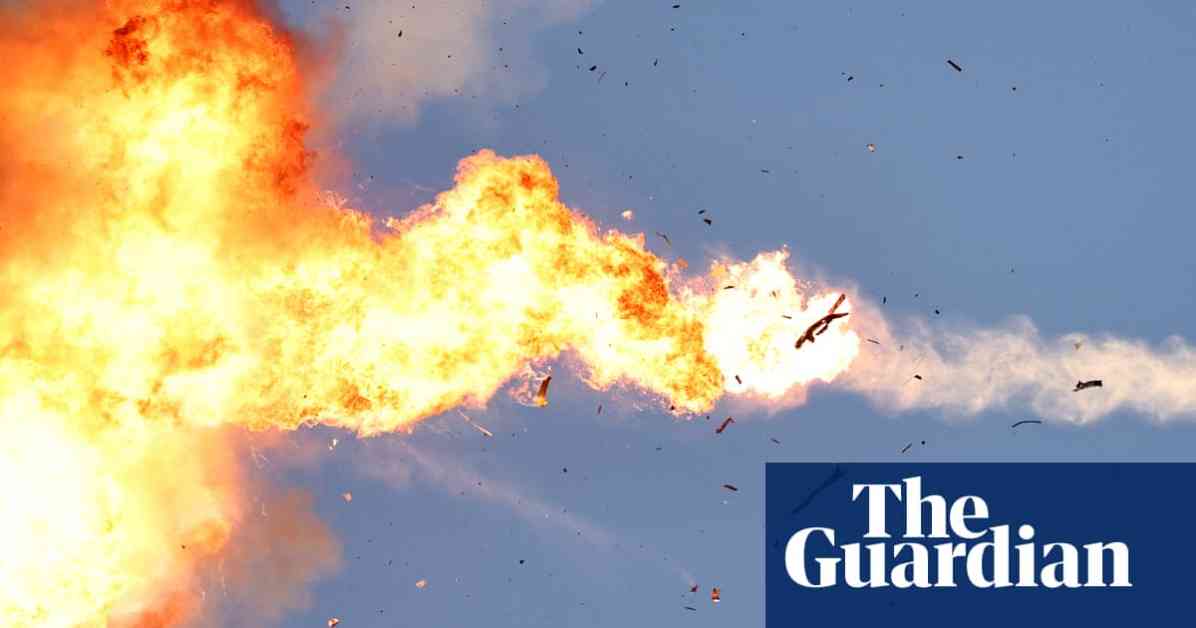Benjamin Netanyahu has issued a stern warning following Israeli air raids targeting Hezbollah positions in southern Lebanon, stating that the recent exchanges of fire were “not the end of the story.” The escalation of violence between Israel and Hezbollah has raised concerns of a potential regional conflict, as both sides engaged in their heaviest fighting since the outbreak of the war in Gaza.
Netanyahu did not provide specific details on any further actions that Israel might take following the intense exchanges, but he indicated that Israel’s moves were aimed at “changing the situation in the north.” The Israel Defense Forces (IDF) utilized 100 fighter jets to strike more than 40 target sites inside Lebanon over a period of seven hours. In response, Hezbollah launched hundreds of rockets and drones towards Israel.
The Israeli prime minister stated that the air raids had successfully destroyed thousands of short-range rockets that were intended to target Israeli citizens and forces in the Galilee region. Additionally, the IDF intercepted all drones launched by Hezbollah at a strategic target in central Israel. Although Netanyahu did not disclose the specific target, Hezbollah leader Hassan Nasrallah identified it as a military intelligence base located 110km inside Israeli territory, near Tel Aviv.
The strikes on Lebanon resulted in the deaths of two Hezbollah fighters and a militant from an allied group, while an Israeli navy officer was killed and two others were injured on a patrol boat off the coast of northern Israel. The officer was hit by shrapnel from an Iron Dome interceptor missile. Despite the casualties on both sides, Netanyahu emphasized that Israel did not seek an all-out conflict and would act according to developments on the ground.
In response to the Israeli airstrikes, the armed wing of Hamas fired an “M90” rocket towards Tel Aviv, citing Israeli attacks against civilians as the reason for their actions. However, the rocket landed in an open area, causing no significant damage. Hamas officials also rejected new Israeli conditions proposed during ceasefire talks, further complicating efforts to reach a resolution.
Hezbollah leader Hassan Nasrallah downplayed the impact of the Israeli airstrikes, claiming that Hezbollah’s aerial attack was a success in retaliation for the killing of a senior commander. Nasrallah stated that Hezbollah deliberately targeted military installations instead of Israeli civilians or infrastructure. He asserted that Hezbollah’s arsenal of guided missiles remained intact and could be utilized in the future if necessary.
While both Netanyahu and Nasrallah hinted at the possibility of further exchanges along the Israeli-Lebanese border, diplomatic sources indicated that both sides had communicated their desire to de-escalate tensions. Israeli Foreign Minister Israel Katz reiterated that Israel did not seek a full-scale war, but would respond as needed based on the situation on the ground.
Israeli military observers believe that further airstrikes against Hezbollah positions may be necessary to maintain stability in the region. Defense Minister Yoav Gallant praised the success of the pre-emptive Israeli action, which disrupted Hezbollah’s planned rocket and drone attacks. Gallant emphasized the importance of negotiating a resolution to the conflict in Gaza while remaining prepared for any potential threats from Hezbollah.
Amid the escalating tensions, Israel’s allies expressed support for Israel’s right to defend itself against threats from Hezbollah. The United States, through spokesperson Sean Savett, affirmed its commitment to regional stability and ongoing support for Israel’s security. The US Chairman of the Joint Chiefs of Staff, Gen Charles Brown, visited Israel for talks with military officials to discuss the situation in the region.
In a phone call with UK Defense Secretary John Healey, Defense Minister Gallant highlighted the importance of cooperation between Israel and Britain in ensuring regional security. He emphasized the need to prevent further escalation and maintain stability in the region. Despite the ongoing conflict, efforts were being made to de-escalate tensions and seek diplomatic solutions to the underlying issues.
As the situation between Israel and Hezbollah remains tense, the international community continues to monitor developments closely. The potential for further confrontations and the risk of a broader regional conflict underscore the importance of diplomatic efforts to address the root causes of the conflict and prevent further escalation. Both sides must exercise restraint and engage in meaningful dialogue to avoid further bloodshed and instability in the region.












